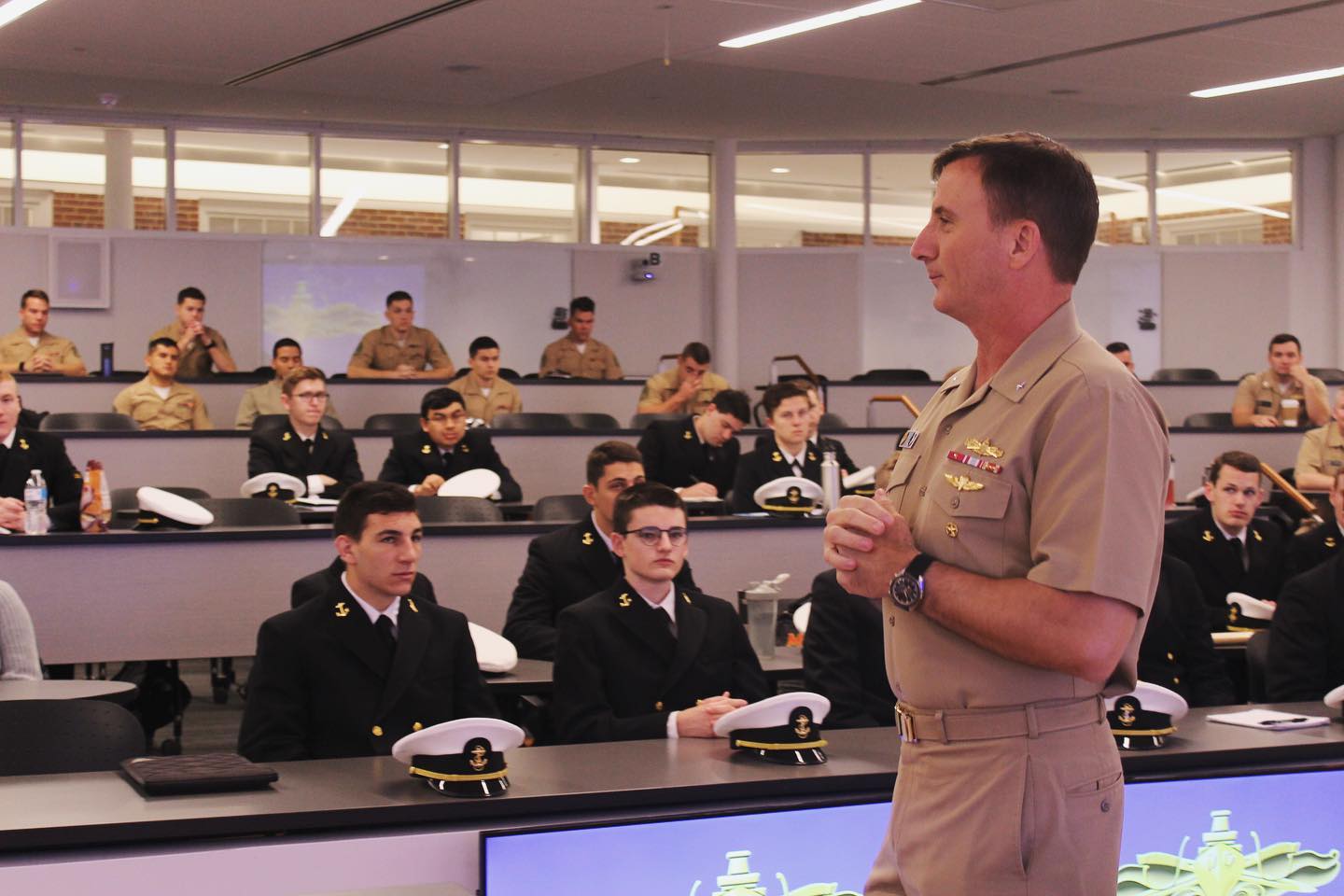Naval ROTC Curriculum
As a part of the NROTC program, midshipmen are required to take a series of classes taught by University of Maryland NROTC unit Staff Officers. Navy midshipmen will take eight classes and Marines are required to take six classes, but are not limited to that number.

Required Classes for all Midshipmen
- NAVY100- Introduction to Naval Science (Offered only during the fall)
- NAVY101- Seapower and Maritime Affairs (Offered only during the spring)
- NAVY200- Leadership and Management (Offered only during the fall)
- NAVY401- Leadership and Ethics (Offered only during the spring)
- NAVY108- Leadership Lab (all semesters)
If you join the program as a second semester freshman or sophomore you will have to take multiple Naval Sciences classes per semester to finish the curriculum by graduation.
- NAVY302-Evolution of Warfare
- NAVY402-Maneuver Warfare
For the Marine Corps option, the usual sequence of courses is:
- Freshman: Introduction to Naval Science and Seapower and Maritime Affairs
- Sophomore: Leadership and Management and Evolution of Warfare
- Junior: Fundamentals of Maneuver Warfare
- Senior: Leadership and Ethics
- NAVY201-Navigation (Offered only during the spring)
- NAVY300-Naval Ship Systems I Engineering(Offered only during the fall)
- NAVY301-Naval Ship Systems II Weapons (Offered only during the spring)
- NAVY400-Naval Operations and Seamanship (Offered only during the fall)
In addition to Naval Science coursework, all Navy option midshipmen are required to fulfill the following credits:
- Seven credits of Calculus-based Physics (PHYS 161, PHYS 260, and PHYS 261)
- Eight credits of Calculus (MATH 140 and 141)
- Three credits of American Military History or National Security Policy
- Six credits of English
- Three credits of Cross-Cultural or Regional Studies
For the Navy option, the usual sequence of courses is:
- Freshman: Introduction to Naval Science and Seapower and Maritime Affairs
- Sophomore: Leadership and Management and Navigation
- Junior: Naval Engineering and Naval Weapons Systems
- Senior: Naval Operations and Leadership and Ethics
